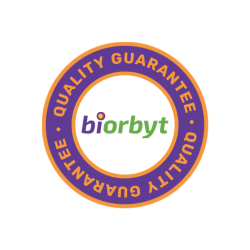You have no items in your shopping cart.
Cart summary

Adenylosuccinate Lyase Protein, Human, Recombinant (His)
Catalog Number: orb1957133
| Catalog Number | orb1957133 |
|---|---|
| Category | Proteins |
| Description | Adenylosuccinate lyase, also known as adenylosuccinase, ADSL or ASL, is an enzyme implicated in the reaction of adenylosuccinat converting to AMP and fumarate as part of the purine nucleotide cycle. The two substates of adenylosuccinate lyase (ADSL) are dephosphorylated derivatives of SAICA ribotide (SAICAR) and adenylosuccinate (S-AMP), which catalyzes an important reaction in the de novo pathway of purine biosynthesis. ADSL catalyzes two distinct reactions in the synthesis of purine nucleotides, both of which involve the _-elimination of fumarate to produce either aminoimidazole carboxamide ribotide from SAICAR or AMP from S-AMP. The Adenylosuccinate lyase deficiency is a rare autosomal recessive metabolic disorder characterized by the present of SAICA riboside and succinyladenosine (S-Ado). ADSL defect in different patients is often caused by different mutations to the enzyme. |
| Tag | N-His |
| Purity | 98.00% |
| MW | 57 kDa (predicted); 53 kDa (reducing conditions) |
| UniProt ID | P30566 |
| Expression System | E. coli |
| Biological Origin | Human |
| Biological Activity | Adenylosuccinate lyase, also known as adenylosuccinase, ADSL or ASL, is an enzyme implicated in the reaction of adenylosuccinat converting to AMP and fumarate as part of the purine nucleotide cycle. The two substates of adenylosuccinate lyase (ADSL) are dephosphorylated derivatives of SAICA ribotide (SAICAR) and adenylosuccinate (S-AMP), which catalyzes an important reaction in the de novo pathway of purine biosynthesis. ADSL catalyzes two distinct reactions in the synthesis of purine nucleotides, both of which involve the _-elimination of fumarate to produce either aminoimidazole carboxamide ribotide from SAICAR or AMP from S-AMP. The Adenylosuccinate lyase deficiency is a rare autosomal recessive metabolic disorder characterized by the present of SAICA riboside and succinyladenosine (S-Ado). ADSL defect in different patients is often caused by different mutations to the enzyme. |
| Expression Region | A DNA sequence encoding the human ADSL (P30566-1) (Met 1-Leu 484) was expressed, with a polyhistidine tag at the N-terminus. Predicted N terminal: Met |
| Storage | -20°C |
| Note | For research use only |
| Application notes | A Certificate of Analysis (CoA) containing reconstitution instructions is included with the products. Please refer to the CoA for detailed information. |
| Expiration Date | 6 months from date of receipt. |


